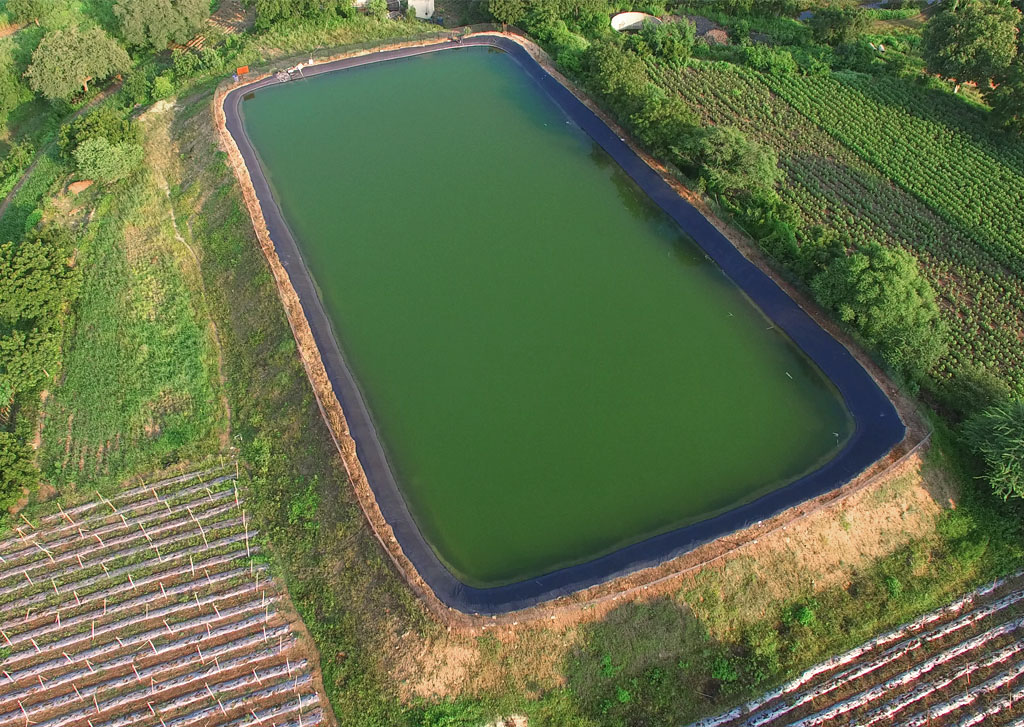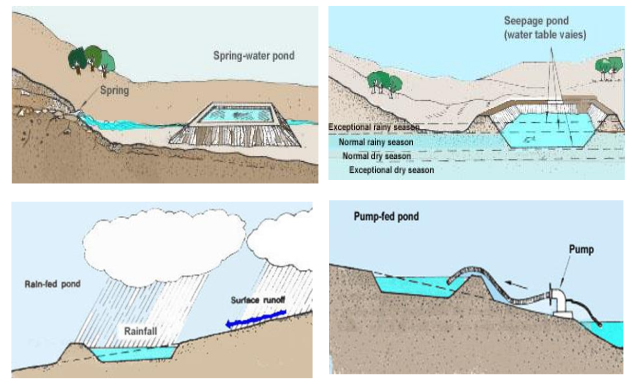Construction of Farm Ponds
The majority of farm ponds are usually constructed for fish farming, fire protection, livestock watering, domestic purposes, or simply landscape beautification. However, their usefulness as irrigation and watershed management tools has not been sufficiently exploited. As water supplies might be uncertain in the existing water distribution system, farmers need to make more concerted efforts to institute on-farm water storage ponds in irrigated and rain-fed areas of the province to improve water security at the farm level.
Farm ponds have great potential to improve agricultural water security by capturing rainfall runoff during the rainy season, storing excess water from any source during times of no need, and enabling the conjunctive use of water in saline groundwater areas for irrigation of crops in the country. Farm ponds can also serve as a lifesaving water source for frost protection and provide a wide range of additional economic and environmental benefits. As such, farm ponds can be effectively applied in both irrigated and rainfed agriculture.
The farm pond can also be considered for mitigating climatic variability. Under dwindling per capita water availability, even relatively small volumes of water storage can significantly increase agricultural and economic productivity besides safeguarding domestic and livestock needs during dry periods in barani areas. Ponds are necessary for rainfed areas for various reasons including, the absence of facilities for supplemental irrigation, and the availability of a very small volume of discharge from various water sources e.g., small tubewell, dug well, etc.

